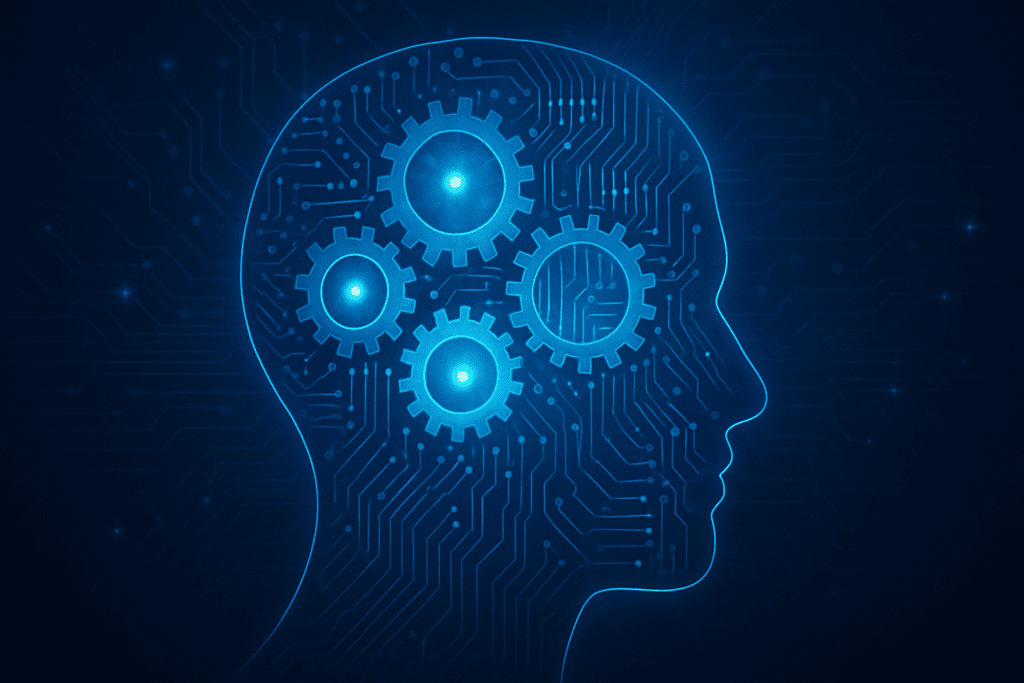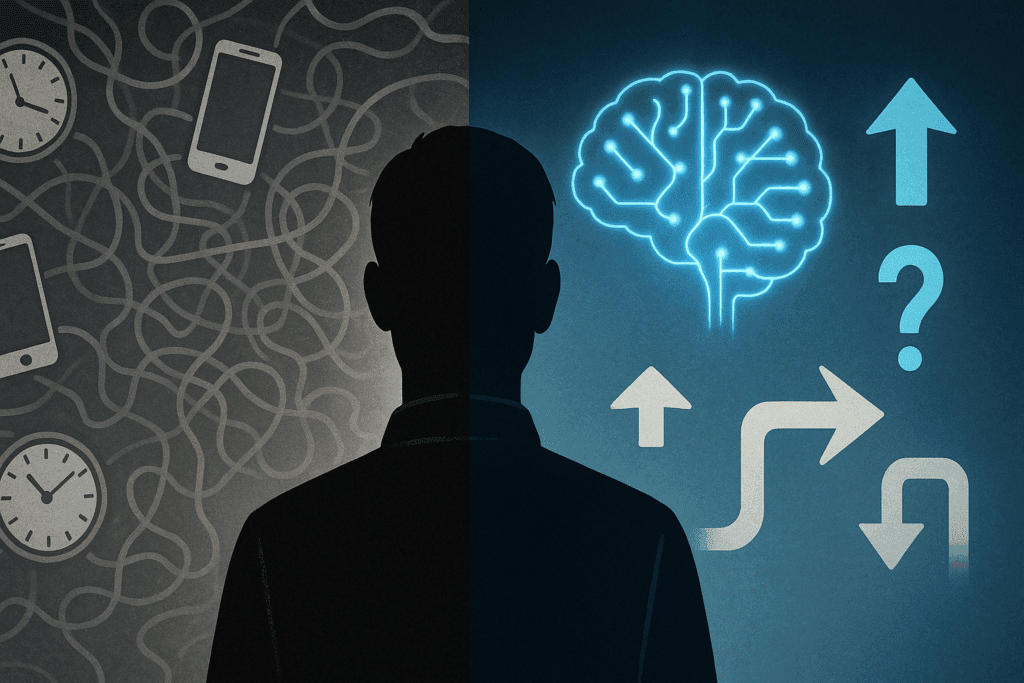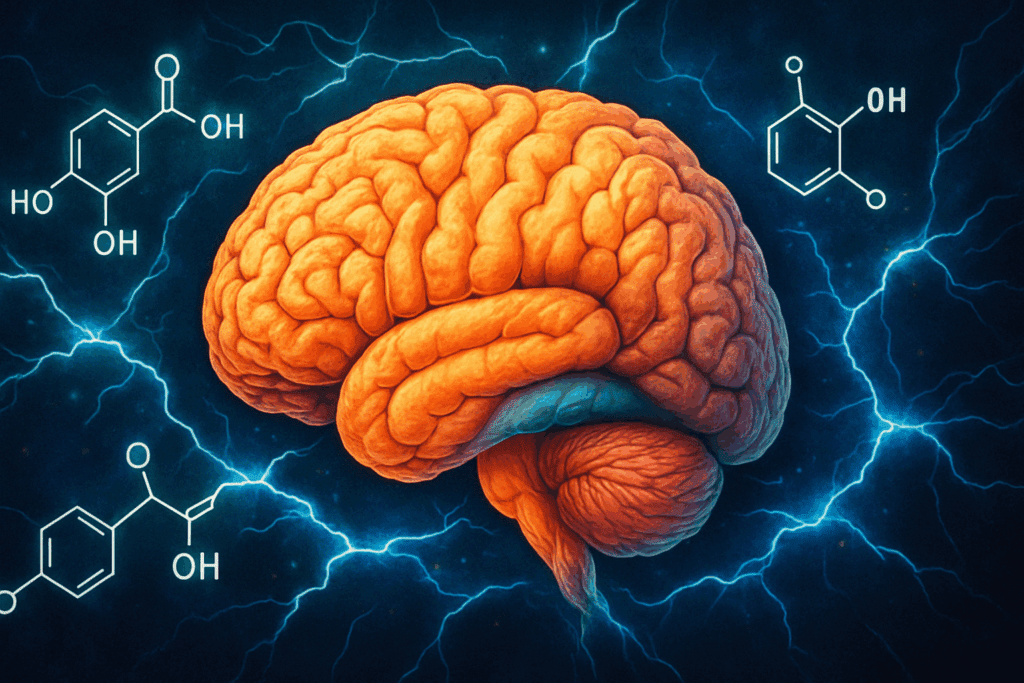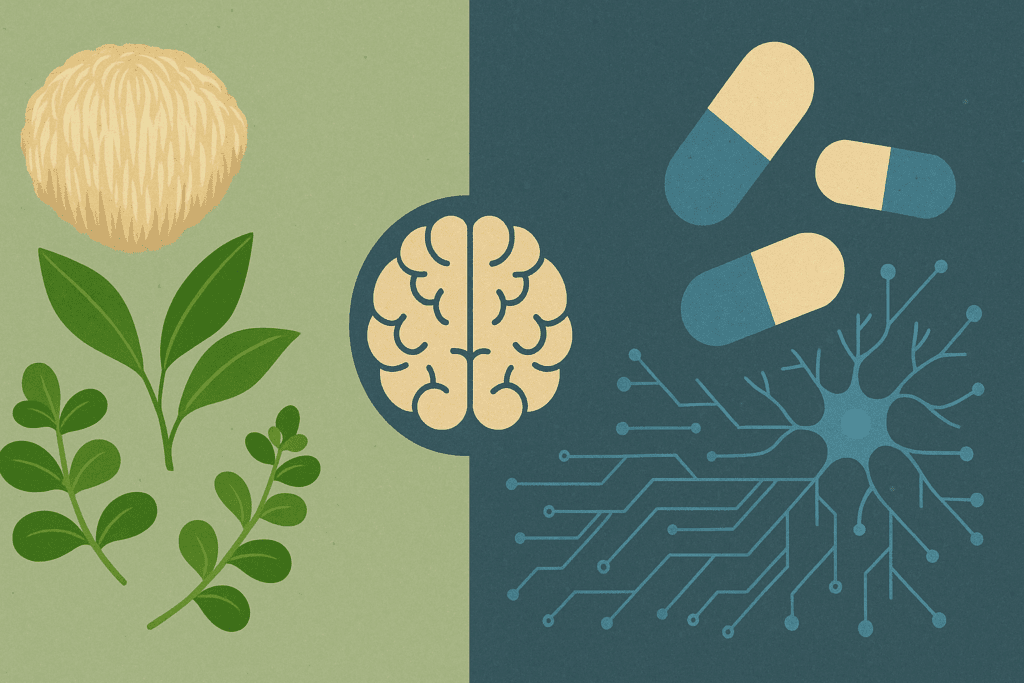Cognitive health is a phrase that has gained increasing relevance in today’s health and wellness conversation, but its true meaning extends beyond memory games or brain teasers. For individuals seeking to make better decisions, enhance focus, and support long-term brain vitality, understanding the cognitive health meaning is more than an academic exercise—it’s a practical imperative. As scientific understanding of the brain expands, so does our appreciation for the interconnectedness between cognitive function and virtually every aspect of our lives, from personal productivity to emotional resilience. In a world saturated with stimuli and distractions, maintaining optimal cognitive mental health is becoming essential not only for mental clarity but also for making sound, deliberate decisions in daily life.
You may also like: How to Choose the Best Brain Supplements for Adults: Science-Backed Ingredients That Support Focus, Memory, and Mental Clarity
The significance of cognitive health cannot be overstated. From managing complex tasks at work to handling emotional conflicts in relationships, our cognitive systems orchestrate our capacity to understand, interpret, and respond to our environments. And unlike many physical health conditions, cognitive decline often begins subtly, creeping into our routines as reduced focus, slower problem-solving, and mental fatigue. That’s why it’s crucial to unpack the cognitive health definition with both depth and nuance. By exploring what it truly means to be cognitively healthy—and how we can sustain that state throughout life—we position ourselves to preserve not just memory, but mental agility, creativity, and sound judgment.

Defining Cognitive Health in Context
To fully define cognitive health, it’s important to look beyond surface-level descriptions. At its core, cognitive health refers to the capacity of an individual to clearly think, learn, and remember. This includes a wide array of mental abilities such as attention, memory, language, reasoning, decision-making, and executive function. But unlike isolated traits, cognitive health represents the harmonious operation of all these faculties in real time, in context. It’s about how effectively our minds help us navigate life’s challenges, engage in meaningful social interactions, and achieve our personal and professional goals.
While some definitions might reduce cognitive health to the absence of disease, such as dementia or Alzheimer’s, a broader and more accurate perspective recognizes it as a dynamic state of mental functioning. Much like physical fitness, cognitive well-being exists on a spectrum and can be enhanced, maintained, or degraded over time depending on lifestyle choices, environmental factors, and biological predispositions. To define cognitive health accurately is to understand that it’s not simply a passive state but an active, evolving condition influenced by both internal neurobiology and external stimuli.
This perspective also underscores the distinction between cognitive health and mental health. While the two are intimately linked, they are not synonymous. Cognitive health specifically relates to processes like perception, memory recall, and decision-making, whereas mental health encompasses emotional well-being, mood regulation, and psychological resilience. Still, cognitive mental health bridges these domains, highlighting how cognitive clarity can fortify emotional balance, and vice versa.
The Role of Cognitive Health in Decision-Making
One of the most critical but often underappreciated functions of cognitive health is its direct influence on decision-making. Every day, from choosing breakfast to evaluating a career change, we are required to assess options, weigh consequences, and make choices. These processes depend on a finely tuned interplay between short-term memory, attention control, logical reasoning, and emotional regulation—all pillars of cognitive mental health. When these faculties are impaired, even slightly, our decision-making suffers. We may become impulsive, indecisive, or overwhelmed by information.
Studies in neuropsychology and behavioral economics have repeatedly shown that people with better cognitive functioning are more likely to make financially sound, ethically consistent, and future-oriented decisions. This isn’t a matter of intelligence alone; it’s about cognitive flexibility—the ability to shift perspectives, adapt to changing information, and resist cognitive biases. In fact, decision-making errors are often linked to lapses in attention or memory distortions rather than a lack of knowledge or intention.
Maintaining strong cognitive health means safeguarding the neural networks that allow us to interpret risk, delay gratification, and act in alignment with long-term goals. As such, cognitive wellness is not a luxury—it’s a prerequisite for living a meaningful, self-directed life. Whether you’re a student trying to retain information, a business executive evaluating strategies, or a caregiver managing responsibilities, your ability to make thoughtful, confident decisions hinges on your cognitive health.

Biological Foundations of Cognitive Mental Health
Understanding the cognitive health definition requires us to dig into the underlying biology of cognition. The human brain, an intricate network of approximately 86 billion neurons, relies on constant communication between regions responsible for memory encoding, emotional regulation, language processing, and decision-making. These regions include the prefrontal cortex, hippocampus, amygdala, and cerebellum—each with distinct but interconnected roles.
Neurotransmitters such as dopamine, serotonin, acetylcholine, and glutamate act as chemical messengers, facilitating everything from mood stabilization to learning new skills. When these systems are balanced, cognitive processes tend to function smoothly. However, disruptions—whether due to chronic stress, inflammation, oxidative damage, or poor sleep—can alter neurotransmitter availability and neural connectivity, leading to noticeable declines in cognitive function.
Emerging research in neuroplasticity—the brain’s ability to reorganize itself by forming new neural connections—has revolutionized how we approach cognitive health. No longer viewed as a static trait, cognitive capacity can now be understood as a malleable set of skills that can be cultivated or compromised over time. This insight opens the door to lifestyle interventions that target not just symptom management, but the enhancement of core mental faculties.
Lifestyle Habits That Strengthen Cognitive Function
Cognitive health is deeply influenced by the way we live. While genes play a role, daily habits are perhaps the most powerful modulators of brain function. Regular physical activity, for example, increases blood flow to the brain and stimulates the production of brain-derived neurotrophic factor (BDNF), a protein that supports neuroplasticity and long-term memory formation.
Equally important is sleep. During deep sleep, the brain consolidates memories, clears metabolic waste through the glymphatic system, and recalibrates neural circuits. Chronic sleep deprivation, even if mild, can impair attention, reduce creativity, and compromise judgment—directly impacting cognitive mental health.
Nutrition also plays a crucial role. Diets rich in antioxidants, omega-3 fatty acids, and anti-inflammatory compounds have been associated with better brain volume and function. In contrast, high-sugar and highly processed diets are linked to insulin resistance in the brain, a risk factor for cognitive decline. Hydration, too, is often overlooked but vital, as even mild dehydration can impair short-term memory and focus.
Mindfulness practices such as meditation and breathing exercises have also demonstrated measurable benefits on attention regulation and emotional control. These interventions appear to reduce activity in the brain’s default mode network (DMN), which is associated with rumination and mind-wandering, thereby sharpening our ability to stay present and engaged.
The Importance of Social and Intellectual Engagement
Cognitive health is not merely an individual pursuit. Our minds thrive in socially enriched environments. Engaging in regular conversations, participating in group activities, and maintaining strong social ties all stimulate various brain regions. Social isolation, by contrast, is increasingly recognized as a significant risk factor for cognitive decline, particularly in older adults.
Intellectual engagement—through reading, learning new skills, or solving puzzles—also supports cognitive longevity. These activities enhance what psychologists refer to as cognitive reserve, the brain’s ability to improvise and find alternative ways of completing tasks when familiar pathways are damaged or lost. The more we challenge our minds, the more resilient they become.
Language acquisition, musical training, and even video games designed to boost memory or attention can have significant effects. While not a substitute for medical care or therapeutic intervention, such activities can act as daily reinforcements for cognitive strength. Understanding the cognitive health meaning through this lens highlights the value of both social and intellectual stimulation as integral to brain wellness.

Cognitive Health Across the Lifespan
Cognitive health is not a static achievement but a lifelong process. In childhood and adolescence, cognitive development is rapid, laying the foundation for future learning and behavior. Early education, nutrition, and emotional security all contribute to forming strong neural connections during these formative years. Interventions at this stage can have long-term implications for mental and emotional resilience.
In adulthood, cognitive health is shaped by occupational challenges, life stressors, and personal growth. At this stage, maintaining cognitive vitality requires conscious effort—balancing work, family, and self-care while minimizing cognitive overload. Many adults begin to experience subtle changes in memory and focus, which, though often normal, can be improved through lifestyle interventions.
As we age, the focus often shifts to cognitive preservation. While age-related decline is natural, it’s not inevitable. Older adults who remain active, socially connected, and mentally engaged can maintain a high level of cognitive function well into their later years. Understanding how to define cognitive health in this context means recognizing the difference between normal aging and pathological cognitive decline—and empowering individuals with tools to stay mentally agile.
Challenges to Cognitive Health in Modern Society
Modern life, while full of conveniences, also presents unique challenges to cognitive health. The constant influx of information from digital devices can fragment attention, reduce working memory, and diminish our ability to engage in deep, focused thought. This phenomenon, sometimes referred to as “digital dementia,” underscores the need for conscious digital hygiene practices such as screen-free time and structured focus periods.
Chronic stress is another cognitive saboteur. High cortisol levels over time can shrink the hippocampus, impair new memory formation, and interfere with executive function. Add to this the rise of poor dietary habits, sedentary lifestyles, and insufficient sleep, and it becomes clear that our cultural environment often works against sustained mental clarity.
Understanding the cognitive health definition in today’s world also means being alert to systemic factors like healthcare access, socioeconomic disparities, and education quality. Cognitive health is not just a personal responsibility—it’s a public health issue requiring policy support and community-based initiatives that promote mental well-being for all age groups.
The Role of Nootropics and Emerging Cognitive Enhancers
In the pursuit of optimized cognitive performance, many are turning to nootropics—substances that claim to enhance mental function. These range from natural compounds like L-theanine, bacopa monnieri, and lion’s mane mushroom to synthetic options such as racetams and modafinil. While not a substitute for foundational health practices, evidence suggests that certain nootropics may support attention, memory, and decision-making, particularly in individuals experiencing cognitive fatigue.
However, it’s critical to approach nootropics with scientific discernment. Not all products are created equal, and many lack rigorous clinical testing. Choosing supplements that are third-party tested and grounded in peer-reviewed research is essential. Furthermore, cognitive enhancers should complement, not replace, lifestyle interventions. The most effective nootropic stack is one built on sleep, nutrition, exercise, and mindfulness—with targeted supplements used as supportive tools.
Exploring the cognitive health meaning in relation to nootropics opens an exciting frontier in neuroenhancement but also demands responsible usage. Users must be informed, cautious, and aligned with long-term wellness rather than short-term boosts that mask underlying cognitive issues.

Standalone FAQ: Fresh Insights into Cognitive Health and Its Practical Applications
1. How can social interaction influence long-term cognitive health, especially in aging populations?
Social interaction plays a significant role in supporting long-term cognitive mental health by stimulating various regions of the brain that govern memory, emotion regulation, and problem-solving. Engaging conversations, collaborative problem-solving, and shared activities can help delay age-related cognitive decline by encouraging neuroplasticity—the brain’s ability to reorganize itself through new connections. For older adults, regular social engagement has been linked with slower rates of cognitive deterioration, reduced risk of dementia, and better preservation of executive function. While most people associate cognitive health with puzzles or nutrition, social bonding is a surprisingly powerful cognitive enhancer. When we define cognitive health in broader terms, it includes the capacity to maintain meaningful relationships that reinforce memory and emotional balance.
2. What role does sleep quality play in shaping cognitive health beyond basic rest?
High-quality sleep does far more than recharge the body—it enables memory consolidation, emotional regulation, and cellular repair in the brain. One lesser-known impact of poor sleep is on glymphatic clearance, a process where the brain removes metabolic waste that accumulates during the day. Chronic disruption of this system can affect attention, decision-making, and even accelerate neurodegeneration. People often overlook the cognitive health meaning as encompassing not just sharpness during the day but also the overnight processes that preserve mental clarity. Protecting cognitive health through improved sleep hygiene—such as regular sleep schedules, screen-free wind-down routines, and mindfulness practices—can be a long-term investment in mental longevity.
3. Can creativity exercises like music or drawing improve cognitive health?
Yes, engaging in creative tasks such as music, painting, or even improvisational storytelling activates neural networks that contribute to fluid intelligence, memory integration, and emotional processing. These types of activities are particularly effective because they challenge the brain to connect disparate ideas, often improving synaptic plasticity over time. Unlike rote memory tasks, creativity encourages divergent thinking, which is a core component of cognitive flexibility. If we define cognitive health as more than just mental endurance—encompassing adaptability, mood regulation, and abstract reasoning—then creativity becomes a vital pillar. This approach offers a refreshing alternative to traditional brain training apps by embedding cognitive resilience into self-expression.
4. How does chronic inflammation affect the brain’s cognitive function over time?
Emerging neuroscience has linked chronic, low-grade inflammation—often due to poor diet, lack of sleep, or stress—to progressive cognitive impairment. Inflammatory cytokines can cross the blood-brain barrier and disrupt neural communication, particularly in the hippocampus and prefrontal cortex, which are key areas involved in memory and decision-making. Long-term inflammation is increasingly recognized as a factor in neurodegenerative diseases such as Alzheimer’s and Parkinson’s. To protect cognitive health, it’s essential to address inflammatory triggers early with anti-inflammatory diets, physical activity, and stress-reducing interventions. Understanding the cognitive health definition as encompassing biochemical integrity reveals why even subclinical inflammation deserves attention in cognitive wellness strategies.

5. How does bilingualism or multilingualism impact cognitive aging?
Bilingual individuals tend to exhibit greater cognitive reserve—the brain’s resilience against age-related decline and pathology. Speaking multiple languages enhances working memory, task-switching ability, and attentional control, all of which are critical to sustaining strong cognitive mental health into old age. Studies show that bilinguals may delay the onset of dementia symptoms by several years compared to monolingual peers. This protective benefit is due to the constant mental juggling required to navigate between linguistic frameworks. When we explore the cognitive health meaning in the context of lifelong adaptability, language learning emerges as a powerful cognitive enhancer well beyond early childhood.
6. What are some overlooked lifestyle factors that contribute to declining cognitive health?
While diet, exercise, and sleep are well-known factors, some less obvious contributors to cognitive decline include excessive noise exposure, poor oral health, and long-term exposure to air pollution. These environmental stressors subtly impact brain function through stress pathways, oxidative damage, or vascular dysfunction. For instance, chronic gum disease has been associated with elevated risk of Alzheimer’s, and air pollution may reduce grey matter volume over time. When experts define cognitive health holistically, they’re increasingly including these environmental and systemic factors in their assessments. Protecting your cognitive health may require examining not just what’s on your plate—but also what’s in your immediate environment.
7. Can physical posture influence cognitive performance and mental alertness?
Interestingly, body posture does influence cognitive functioning, particularly when it comes to focus and processing speed. Research shows that upright posture can increase alertness and reduce fatigue-related brain fog, especially during extended periods of concentration. This connection stems from how posture affects blood flow, oxygenation, and engagement of certain neural circuits tied to motivation. In contrast, slouched positions may trigger passive states and impair working memory performance. So when we explore the deeper cognitive health definition, it includes the subtle but impactful role of physical embodiment in supporting mental agility.
8. How do financial stress and economic insecurity impact cognitive mental health?
Economic hardship exerts a powerful influence on cognitive function by increasing stress hormones like cortisol, which can shrink the hippocampus and impair memory formation. Financial strain also reduces cognitive bandwidth—the mental energy available for other tasks—resulting in diminished attention, planning ability, and emotional regulation. This creates a feedback loop where poor cognitive performance may worsen financial decisions, deepening the problem. Supporting cognitive health in economically vulnerable populations requires both psychological support and systemic intervention. Expanding how we define cognitive health helps highlight the social determinants that influence brain function far beyond the individual level.

9. Are there emerging technologies that may enhance cognitive health in the near future?
Yes, the field of neurotechnology is rapidly advancing, offering novel ways to monitor and enhance cognitive performance. Wearable EEG devices, transcranial magnetic stimulation (TMS), and AI-powered cognitive training platforms are being explored for their potential to boost memory, attention, and emotional regulation. These tools aim to personalize interventions based on real-time brain activity, which could redefine cognitive health management from reactive to preventive care. If we consider the evolving cognitive health meaning through the lens of innovation, these developments signal a future where mental sharpness can be enhanced and protected with greater precision and accessibility.
10. How can journaling support cognitive health beyond emotional processing?
Journaling does more than help you process feelings—it strengthens memory retention, improves self-awareness, and enhances executive function by organizing thoughts into coherent narratives. Reflective writing exercises have been shown to activate the brain’s default mode network, which supports internal thought and future planning. Moreover, journaling can serve as a self-monitoring tool for tracking cognitive fluctuations, identifying stress patterns, and prompting behavioral adjustments. When experts define cognitive health as the ability to maintain organized, goal-directed thought processes, journaling fits naturally into that framework. It’s a simple, low-cost way to maintain both emotional and cognitive clarity, especially in high-stress environments.
Closing Reflections on the Meaning and Importance of Cognitive Health
Understanding the meaning of cognitive health is more than defining a term—it’s about appreciating the delicate symphony of mental processes that make up our lived experience. From early development through old age, our cognitive systems determine how well we learn, adapt, communicate, and decide. To define cognitive health in the fullest sense is to recognize it as a dynamic, multidimensional state of brain function influenced by biology, behavior, and environment.
Cognitive mental health, at its best, empowers us to live with clarity, purpose, and confidence. It is foundational not only for individual fulfillment but for societal progress, affecting everything from educational outcomes to workplace productivity and interpersonal harmony. In a rapidly evolving world, where mental agility and sound judgment are at a premium, investing in our cognitive well-being is not optional—it’s essential.
Whether you’re seeking to enhance focus, sharpen memory, or make better decisions, nurturing your cognitive health is the most impactful step you can take. By integrating scientifically supported strategies, staying socially and intellectually active, and making informed choices about cognitive enhancers, you lay the groundwork for sustained mental vitality. And in doing so, you don’t just protect your brain—you elevate your life.
Was this article helpful? Don’t let it stop with you. Share it right now with someone who needs to see it—whether it’s a friend, a colleague, or your whole network. And if staying ahead on this topic matters to you, subscribe to this publication for the most up-to-date information. You’ll get the latest insights delivered straight to you—no searching, no missing out.
Further Reading:
What Does ‘Cognitive’ Mean in Psychology?


